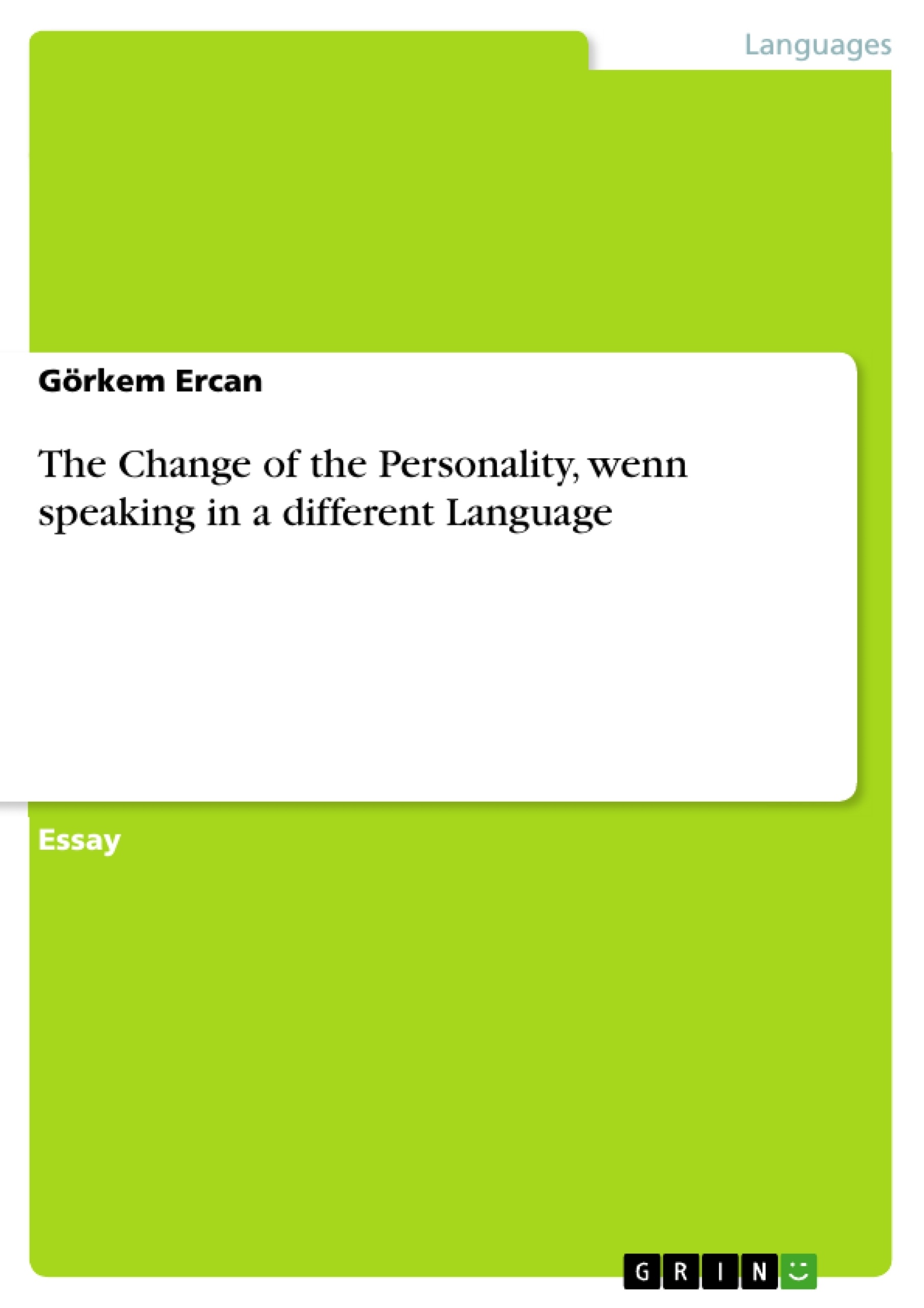One could say that speaking a different language changes ones personality. However, many would also agree that speaking a different language has no affect on ones personality. A considerable amount of literature exists about the topic bilingualism. However so few exist about the idea of bilingualism changing ones personality. Depending on the type of bilingualism, it is considered to be a fact that people change personalities as they switch from one language to another (Collier, 83). There are three types of bilingualism: Simultaneous bilingualism, receptive bilingualism and sequential bilingualism. Simultaneous bilingualism is when as an infant learns two languages at the same time and can speak them both as a mother tongue (Collier, 84)
Inhaltsverzeichnis (Table of Contents)
- Does speaking a different language change your personality?
- Simultaneous, Receptive, and Sequential Bilingualism
- Changing Personalities and Behaviors
- Frame Switching in Bilingual Minds
- The Role of Identity in Language Acquisition
- Developing a Second Identity
Zielsetzung und Themenschwerpunkte (Objectives and Key Themes)
This article examines the relationship between bilingualism and personality change, exploring whether speaking a different language alters one's identity and behavior. The analysis draws upon existing literature and research, comparing perspectives on the topic.
- The impact of different types of bilingualism (simultaneous, receptive, and sequential) on personality.
- The concept of "frame switching" and its role in bilingual communication.
- The development of a second identity as a result of language acquisition.
- The varying opinions on the influence of bilingualism on personality.
- The role of education and upbringing in shaping individual identities.
Zusammenfassung der Kapitel (Chapter Summaries)
The article begins by introducing the concept of bilingualism and its different types. It then explores the potential for bilingualism to influence personality, citing studies that suggest a connection between language and identity change. One research focus is on the concept of "frame switching," where individuals switch their behavioral and cognitive patterns when using different languages. The article further examines the development of a second identity as a result of language acquisition, exploring the positive and negative implications of this phenomenon. Ultimately, the article acknowledges the diverse perspectives on the relationship between bilingualism and personality change, recognizing that further research is needed to definitively answer this complex question.
Schlüsselwörter (Keywords)
The main keywords and concepts explored in this text are: bilingualism, personality change, identity, frame switching, language acquisition, second identity, education, upbringing, and individual experience.
Frequently Asked Questions
Does speaking a different language change your personality?
Research suggests that many bilinguals experience "frame switching," where they adapt their behavioral and cognitive patterns to the language they are using.
What are the three types of bilingualism?
The three types are simultaneous bilingualism (learning two languages as an infant), receptive bilingualism, and sequential bilingualism.
What is "frame switching" in bilingual minds?
It is the psychological phenomenon where a person switches their cultural and behavioral framework depending on which language they speak.
Can language acquisition lead to a second identity?
Yes, acquiring a new language often involves adopting the cultural nuances associated with it, which can result in the development of a second identity.
How does upbringing affect bilingual identity?
Education and family environment play a crucial role in how a bilingual person integrates multiple languages into their personality.
- Quote paper
- Görkem Ercan (Author), 2012, The Change of the Personality, wenn speaking in a different Language, Munich, GRIN Verlag, https://www.grin.com/document/229468



